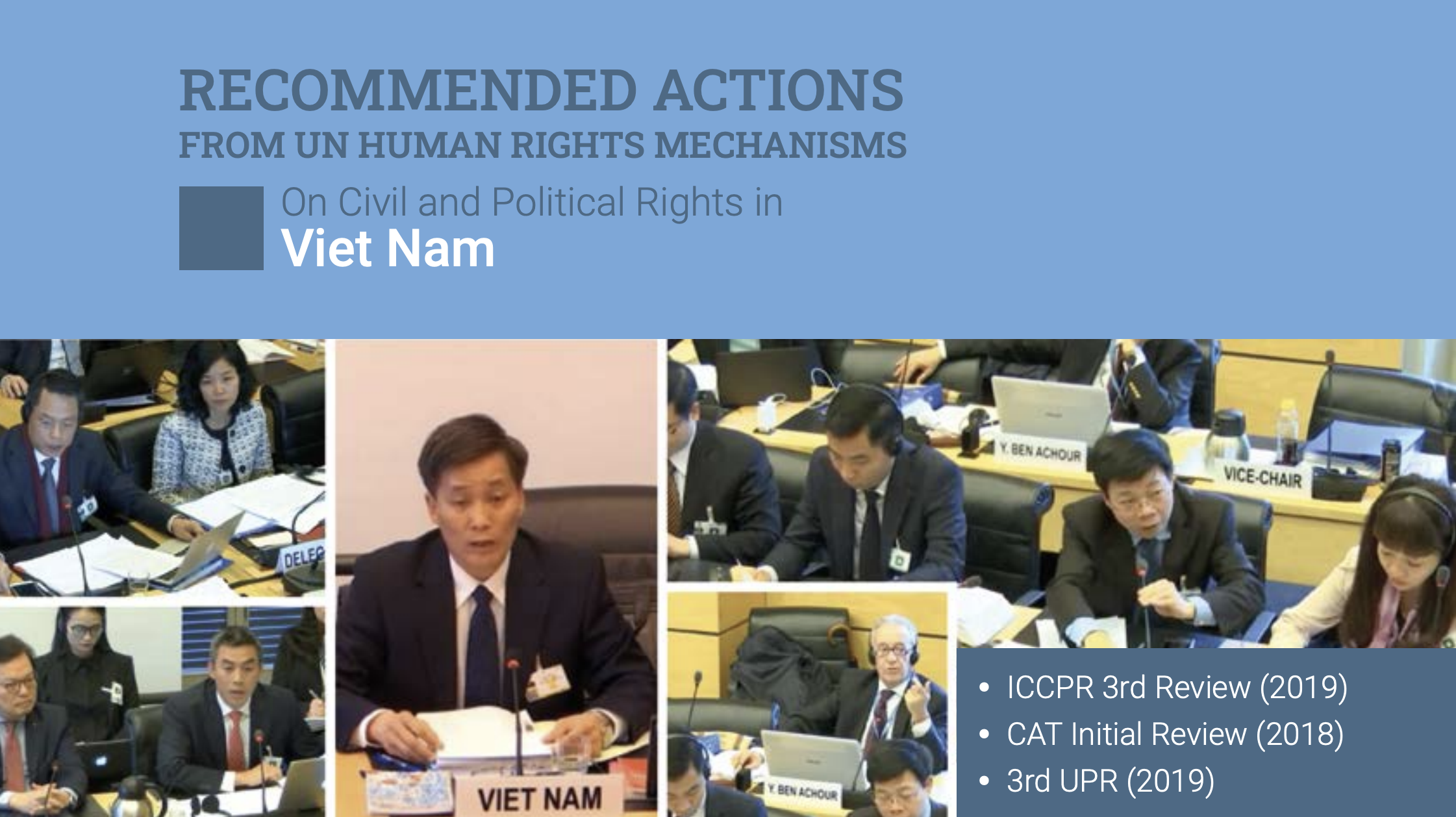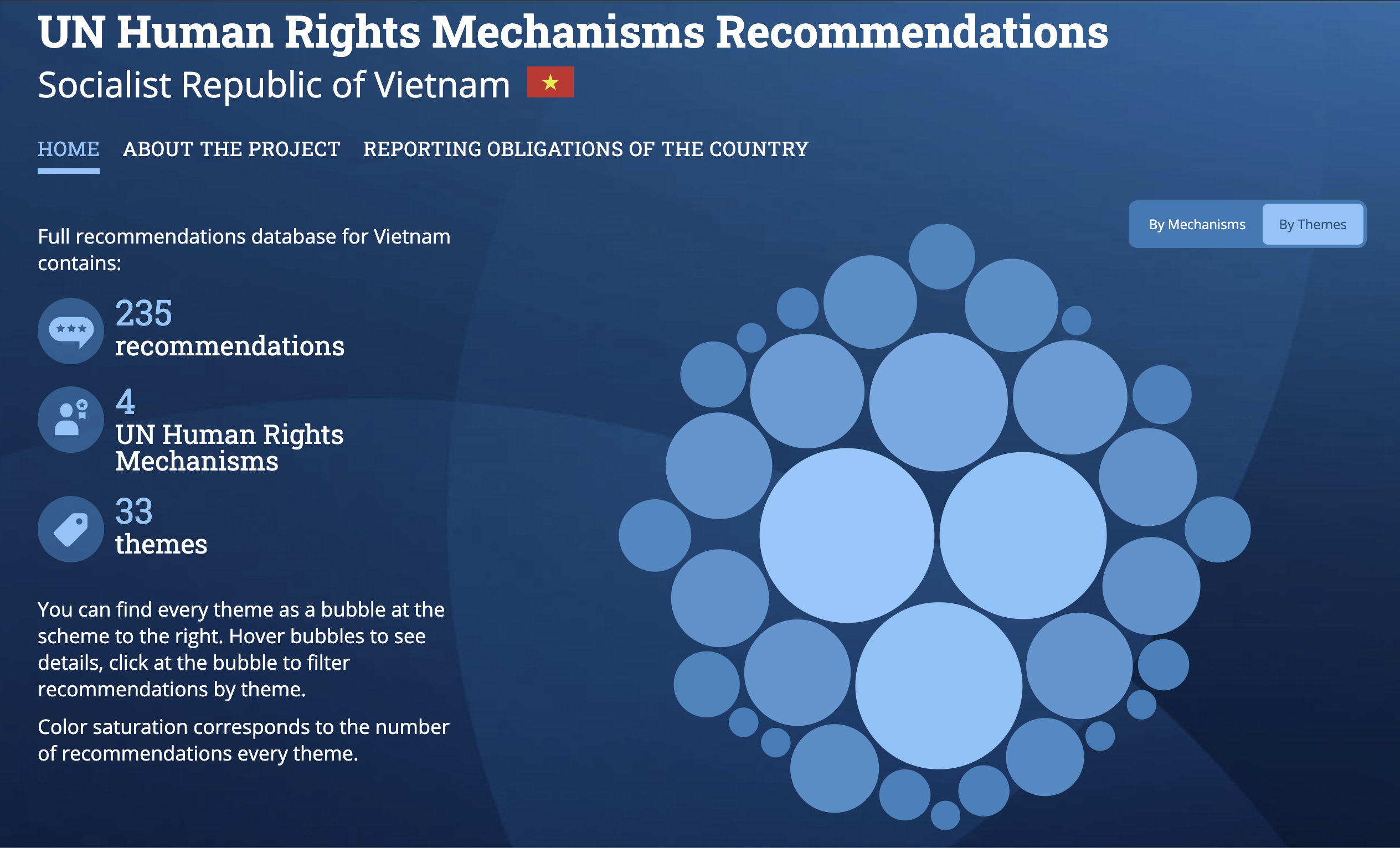Viet Nam: Little is clarified about the dark reality of human rights
Published on 16 Jul 2025, 05:00 PM
A number of questions raised by the Human Rights Committee remains unanswered during 4th review of Viet Nam
 Montagnard individuals in Cambodia's northeastern province of Ratanakiri after leaving Viet Nam, July 22, 2004. Author: Adrees Latif/Reuters
Montagnard individuals in Cambodia's northeastern province of Ratanakiri after leaving Viet Nam, July 22, 2004. Author: Adrees Latif/Reuters
On July 7 and 8, 2025, the Human Rights Committee reviewed Viet Nam’s fourth periodic report under the International Covenant on Civil and Political Rights (ICCPR) in Geneva, Switzerland. The Vietnamese delegation was led by Deputy Minister of Justice, Mr. Nguyen. The delegation explained in length about the legal and policy framework of Viet Nam but little was clarified about the actual situation on the ground and questions from Committee members on critical human rights issues remained unanswered.
Concerns were expressed even before the review about the security of the Human Rights Defenders who engage with UN Human Rights mechanisms, including the Committee. While civil society representatives took precautious measures, the fear of reprisals was certainly present, which was also addressed by the Chair of the Committee at the beginning of the review.
Directive 24 and restriction of fundamental freedoms
Viet Nam’s Directive 24 , a secret Communist Party order restricting independent labor organizing and civil society activity, was one of the most contentious issues during the review. Grave concerns were raised as the directive appeared to be used to justify wide-ranging restrictions on freedoms of expression, association, movement, and peaceful assembly in the name of “national security”. The work of civil society and their engagement with international human rights mechanisms as well as independent media were seen to be “threats” and severely restricted.
The Committee questioned its compatibility with the ICCPR, especially articles 19 on freedom of expression, 21 on the right of peaceful assembly, and 22 on freedom of association, as well as Committee’s General Comment No.34 on the right to freedom of opinion and expression, including about legal safeguards, independent oversight of its application and accountability. However, the response of Viet Nam was largely a general defense of the "necessity" of the directive to protect national security, even citing ICCPR article 1 to justify policies preserving political stability. No concrete information or clarification was given to Committee’s questions.
Indigenous Peoples and members of ethnic and religious minority groups
The Committee asked a number of questions about the situation of Indigenous Peoples and ethnic and religious minorities in Viet Nam. Although there were groups with distinct languages, spiritual practices, and ties to ancestral land who should be regarded as Indigenous Peoples from the perspective of international standards, Viet Nam refused to recognise them as such or engage with the concept of indigenous during the review.
Various concerns were raised over systemic discrimination, socio-economic marginalisation, lack of access to education, health care and employment, land grabbing and forced displacement, restriction on religious practices and language usage, surveillance, harassment, arbitrary detention and reprisals. Unfortunately, the response from Viet Nam only emphasised on the alleged equality before the law and infrastructure development, but no direct or clear answers were given to the Committee.
Death penalty as State secret
While acknowledging the decrease in the number of capital offences from 18 to 10, the Committee expressed serious concerns over the application of the death penalty in Viet Nam. In particular, the death penalty seemed to be imposed on crimes related to drug trafficking and corruption. Moreover, no detailed statistical or disaggregated data was provided on the death penalty as Viet Nam insisted that it was State secret. Forced confessions, treatment of prisoners sentenced to death penalty, lack of advance notice to families about executions and inadequate access to legal counsel were other concerns expressed by the Committee.
Viet Nam alleged that certain groups were excluded from the application of the death penalty, such as persons under 18 or over 75, pregnant women and women with children less than 36 months, and persons with terminal illness. However, it failed to address key questions about due process and wrongful convictions, limitation of death penalty for most serious crimes, or about its position and intention toward abolition.
Watch the review session again here (day 1) and here (day 2).
Disclaimer: Transcripts of the dialogue available here powered by WIPO Speech-to-Text served as the main source of the presented article. While all the information was carefully checked, please refer to the audio or UN WebTV for an official version of the dialogue.
Recommendations of the Human Rights Committee
The Concluding Observations on Viet Nam’s fourth periodic report were released on 18th July 2025. The State party is requested to provide, by 18th July 2028, information on the following recommendations:
National human rights institution
The Committee calls upon the State party to prioritize the establishment of an independent national human rights institution in accordance with the Paris Principles and to allocate adequate financial and human resources to the institution.
Death penalty
In line with General Comment No. 36 on the right to life, the State Party should maintain a de facto moratorium on executions, take steps toward adopting a de jure moratorium, consider abolishing the death penalty, and accede to the Second Optional Protocol to the Covenant. If the death penalty is retained, the State Party should:
- (a) Limit its application to the most serious crimes involving intentional killing and ensure it is never imposed in violation of the Covenant, including fair-trial rights or due to discrimination;
- (b) Guarantee the availability of pardon or commutation in all cases, and establish clear, transparent, and fair procedures for mercy petitions in line with international standards;
- (c) Ensure an independent, effective review process for all death sentences based on new evidence of innocence, provide adequate legal and financial assistance, and offer effective remedies, including compensation, for wrongful convictions;
- (d) Collect and publicly share disaggregated data on death sentences, including the number imposed and executed, defendant demographics, mercy requests and outcomes, and the offenses involved.
Liberty and security of person
In line with General Comment No. 35 on liberty and security of person, the State Party should significantly reduce the use of pretrial detention by expanding non-custodial alternatives and ensuring all detainees receive full legal and procedural safeguards from the outset. Specifically, it should:
- (a) Ensure pretrial detention is used only when necessary, applied non-discriminatorily, kept as short as possible, and subject to strict statutory limits;
- (b) Guarantee regular judicial review of pretrial detention, uphold the right to habeas corpus, and ensure unconditional release and adequate compensation for arbitrary detention;
- (c) Amend or repeal Articles 173(5) and 74 of the Criminal Procedure Code to guarantee immediate access to all legal safeguards, including access to a lawyer, from the moment of detention.
Here, you can find all the recommendations given by the Committee in the Concluding Observations.
The follow-up report of Viet Nam on the implementation of recommendations is due in 2028. The next list of issues will be adopted in 2031, and the next periodic report is due in 2032.
 Montagnard individuals in Cambodia's northeastern province of Ratanakiri after leaving Viet Nam, July 22, 2004. Author: Adrees Latif/Reuters
Montagnard individuals in Cambodia's northeastern province of Ratanakiri after leaving Viet Nam, July 22, 2004. Author: Adrees Latif/Reuters





